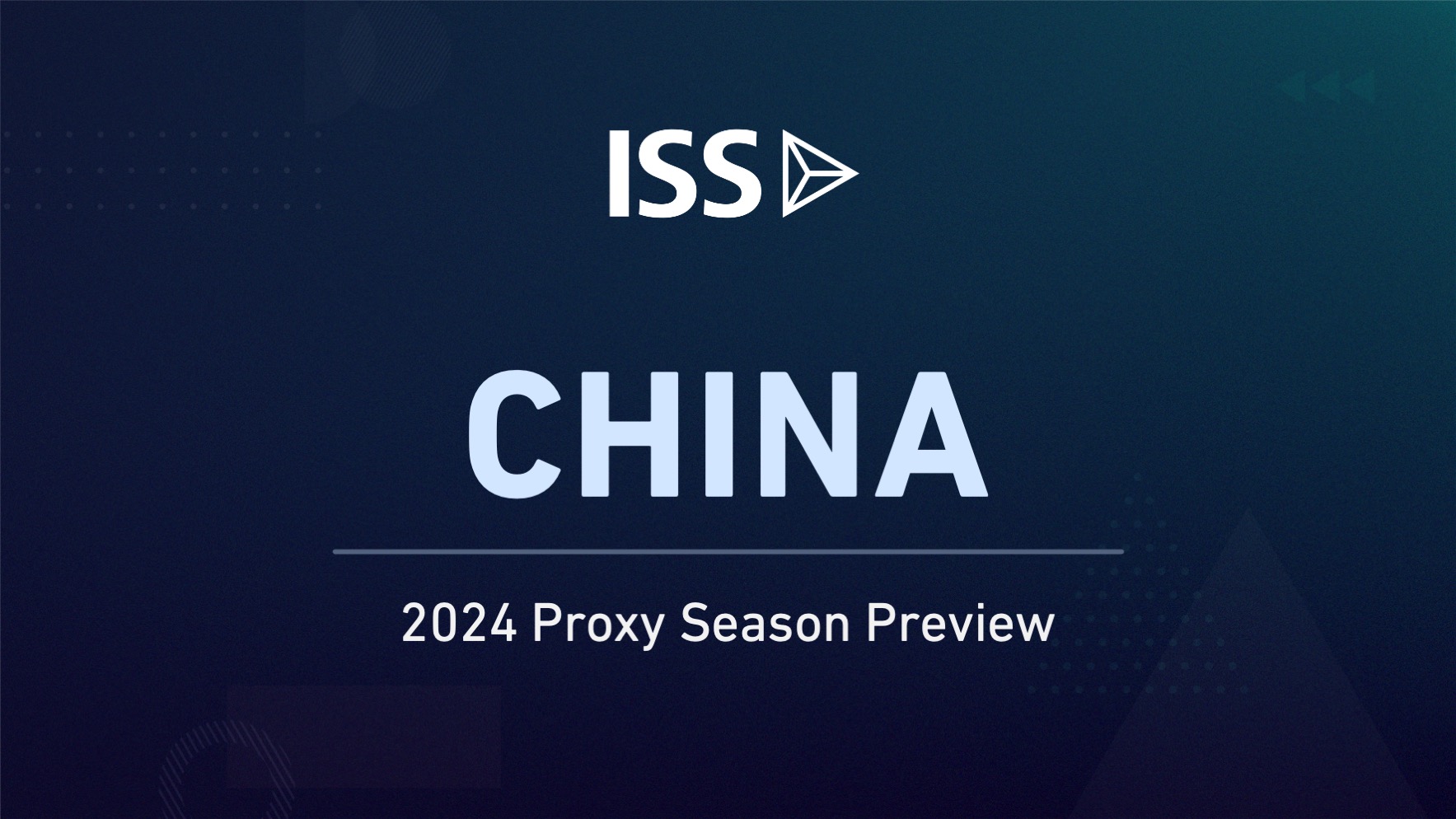2024 China Proxy Season Preview
Below are key takeaways from ISS’ recently released 2024 Proxy Season Preview – China. The full report is available to institutional subscribers by logging into ProxyExchange then selecting the Governance Exchange and its Report Center tab and to corporate subscribers by logging into Governance Analytics then selecting the Governance Exchange and the Report Center tab. […]

Below are key takeaways from ISS’ recently released 2024 Proxy Season Preview – China. The full report is available to institutional subscribers by logging into ProxyExchange then selecting the Governance Exchange and its Report Center tab and to corporate subscribers by logging into Governance Analytics then selecting the Governance Exchange and the Report Center tab.
- Launch of China’s first ESG infromation disclosure rules: The three stock exchanges in China released Guidelines on Sustainability Reporting and are seeking public opinions. More than 450 A-share listed companies are required to disclose their 2025 Sustainable Development no later than April 30, 2026, in line with the framework proposed in the Guidelines.
- Increased female representation in the boardroom: Board diversity at China-listed companies has generally improved, with the percentage of female directors in core companies under ISS coverage seeing a steady, albeit gradual increase from 2019 to 2023.
- An overhaul of independent director rules for listed companies: In August 2023, the China Securities Regulatory Commission (“CSRC”) promulgated the Measures for the Management of Independent Directors of Listed Companies. The Measures require covered companies to detail roles and responsibilities of independent directors and reduce over-boarding ceiling from five listed companies to three domestically listed companies, among other changes.
- Auditor and signing partner tenure in SOEs: In May 2023, the CSRC adopted Measures for Administration of Selection and Engagement of Accounting Firms by State-Owned Enterprises and Listed Companies. The Measures require audit firm tenure for a stated-owned enterprises (SOEs) to be capped at eight years, while capping the auditing project partner and the sigining certified public accountant (CPA)’s tenure at a SOE or a listed company at five years and to have a five-year cooling off period after reaching the tenure limit.
If you are not a subscriber, please contact sales@iss-stoxx.com (for institutional investors) or contactus@isscorporatesolutions.com (for corporations) to learn more about accessing bespoke governance research.
By: Ada Lu, Elodie Zeng, Frances Wang, Mengzhen Zhang, Rui Ning Cheng, Xiao Xie, Xinyi Yang, Yao Yuan






















